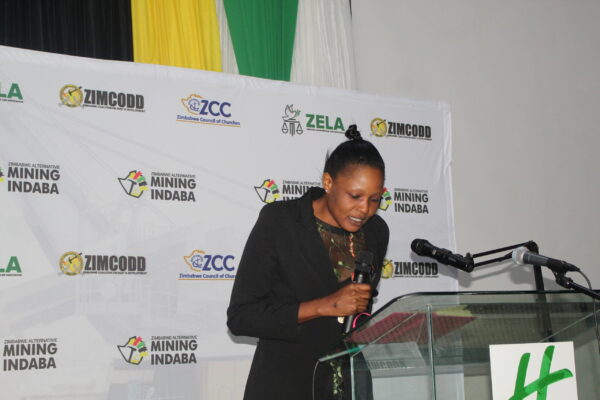As the government is working on supporting the domestic ferrochrome industry, there is a need to gazette a pricing structure and establish chrome hubs with weighbridge and equipment, popular miner Sophia Takuva said at this year’s Zimbabwe Alternative Mining Indaba (ZAMI).
Rudairo Mapuranga
According to Takuva, it was of importance for the government through the Minerals Marketing Corporation of Zimbabwe (MMCZ) to support primary producers of chrome ore as this will help in the achievement of the Ministry of Mines and Mining Development’s vision to see mining realize an annual revenue of US$12 billion by the end of 2023.
“As the government is working on supporting the domestic ferrochrome industry, there is also a need to support the primary producers of chrome ore to benefit from their resources. There is a need to gazette a pricing structure and establish chrome hubs with weighbridges and extraction machinery like excavators. This will increase the production of chrome and make a success of vision 2023 of a US$12 billion mining industry.
“The chrome miners plea to the MMCZ to gazette the pricing structure that guides the chrome buyers. Most buyers are Chinese companies, they work with agents that negotiate prices for the companies and it’s very difficult to negotiate a fair price that can also benefit the miner. There is also a challenge in scaling on the weighbridge, these companies temper with the weigh ridge when miners bring the chrome they always weigh less than the actual weight so instead of being paid 100 tonnes, a miner ends up being paid 80 tonnes,” Takuva said.
It should however be noted that MMCZ has started gazetting a chrome pricing structure thanks to the call by miners, however, the structures are not yet popular as buyers are still buying predatorily from small-scale producers.
According to Takuva, chrome mining has the potential to make a meaningful contribution to the growth of the economy through revenue generation and employment creation.
“In the rural mining communities, small-scale mining has brought development and in Mapanzure and Neta areas, chrome mining is changing the lives of many. Artisanal and small-scale chrome miners use their income to build their homes, drill boreholes that benefit the community, build shops at business centres, and also contribute to building schools and clinics in their areas,” she said.
She said, Chrome mining is capital intensive and it needs expensive machinery to produce, ASM chrome miners depend on Chinese investors for machinery and a market for their chrome.
“Chinese investors partner with small-scale chrome producers in the Mapanzure and Neta areas of Zvishavane. Most of the rich claims are deep and they need excavators to extract the chrome and the deeper the excavation, the higher the cost for the miner miners, usually do not own their mining machinery, they depend on the Chinese for equipment. In exchange, the miners must sell ore back to their Chinese partners or risk losing the relationship. claim owner who has access to the ore, who must renew his title to the mine annually and pay several taxes and fees – takes 15% to 25%, and the rest goes to Chinese partners at artificially low prices. The Chinese partners who own equipment, end up with all the chrome and get profit,” Takuva added.
“There are several women and youth chrome miners who are working in tributes, they face challenges of lack of equipment and when they get the equipment and extract the chrome, they are forced to sell at the very low prices of $25 per tonne because they produce fewer tonnes that is only suitable for local buyers that smelt in the Mapanzure area. Bigger Chinese smelting companies like Afrochine sometimes offer better prices but they need more tonnes of at least 500tonnes per month buying from $60 per tonne.”
The Chinese companies that are buying raw chrome said that they are buying at lower prices because they are also selling ferrochrome at low prices to local players in steel manufacturing.
“There was a ban on the export of raw chrome since July 2022 in a bid to support the domestic ferrochrome industry, ferrochrome is a key ingredient in the production of steel, and this was a great move to support the country’s steel manufacturing sector, it helps capacitate current smelters and maximize the value chain to be realized from the country’s abundant resources. Also, the value chain cannot be closed in at the foundry alone, it goes far to various suppliers in services, chemical, gas, fuel, power, construction, banking, and the tax house ( Zimra) find opportunities to do business in the foundry and chrome beneficiation sectors,” Sophie concluded.




